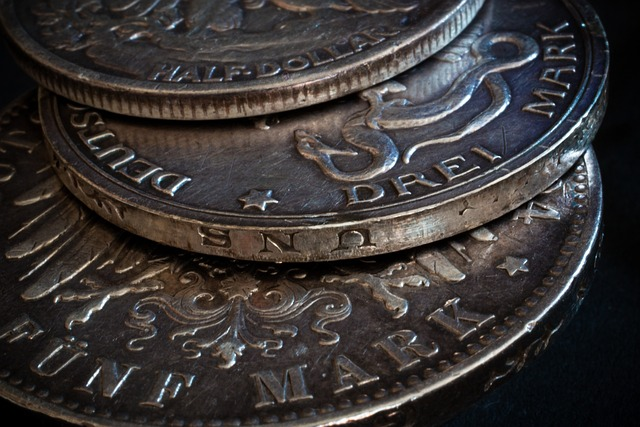As someone interested in investing in precious metals, you may wonder, can I take physical possession of gold in my IRA? The answer is no, but there are some rules and regulations you need to be aware of.
According to Forbes, the basic rule is that an IRA cannot own a collectible. Precious metals are defined as collectibles, whether the investment is in bullion or coins. However, there are exceptions to this rule. The IRS allows certain types of gold, silver, platinum, and palladium coins and bullion to be held in an IRA account as long as they meet specific purity and fineness requirements.
Suppose you are interested in physically possessing the gold in your IRA. In that case, you have two options when you take distributions from your physical Gold IRA: either take physical possession of your metals or liquidate your assets and receive their value in cash instead. However, taking distributions before age 59.5 from your gold IRA would mean a 10% penalty, but the choice is always yours.
It’s important to note that physically storing gold inside your home can expose you to home invasions and other safety concerns. Instead, a better option is opting for reliable, IRS-approved, private storage IRAs.

Understanding Physical Gold IRAs
Definition of a Gold IRA
A Gold IRA is an individual retirement account where investors can invest in physical gold, silver, platinum, or palladium instead of traditional paper assets, such as stocks and bonds. The Internal Revenue Service (IRS) allows certain types of precious metals to be held in an IRA account, including American Gold Eagles, Canadian Gold Maple Leaf’s, and Australian Gold Kangaroos.
Benefits of Investing in Gold
Investing in gold has several benefits, including diversification of portfolio, protection against inflation, and a hedge to protect against economic uncertainty and inflation. A Gold IRA account is a tangible asset that has been used as a store of value for thousands of years and has maintained its purchasing power over time.
Investing in gold through a Gold IRA also provides tax benefits. The gains from the sale of gold held in an IRA account are taxed at the capital gains rate, which is lower than the ordinary income tax rate. A self directed Gold IRA retirement account can also store gold to be passed down to heirs without incurring estate taxes.
However, it is essential to note that investing in gold also comes with risks, including fluctuations in price and the potential for theft or loss. It is vital to conduct thorough research and consult with a financial advisor before investing in a Gold IRA.

Can I take Physical Possession of Gold in my IRAs
IRS Rules and Regulations
As per IRS rules, investors can hold physical gold in their IRA accounts, provided that the gold meets specific requirements. The gold must be in the form of coins or bars that meet the minimum fineness requirements. A national government mint must produce the gold coins, and the bars must be produced by a refiner on the IRS-approved list. A home storage Gold Ira goes against self directed IRA and IRS regulations.
It is important to note that investors cannot hold the gold themselves. Instead, the gold and other physical metals must be held by a custodian the IRS approves. The custodian will store the gold and hold physical metals in a secure location, such as a bank vault or depository.
Eligible Gold Products
The IRS has strict requirements for the types of gold products that can be held in an IRA account. The gold must meet minimum fineness requirements, meaning it must be at least 99.5% pure. The following gold products are eligible for inclusion in an IRA account when purchasing Gold:
American Gold Eagle coins
American Gold Buffalo coins
Australian Gold Kangaroo/Nugget coins
Austrian Gold Philharmonic coins
Canadian Gold Maple Leaf coins
Credit Suisse gold bars
PAMP Suisse gold bars
Not all gold products are eligible for inclusion in an IRA account. For example, collectible gold coins, such as rare or commemorative coins, are not eligible. Also, gold jewelry, ETFs, and mutual funds do not qualify for inclusion in an IRA account.
In conclusion, investors can hold physical gold in their IRA accounts, provided that the gold meets specific requirements and is held by an IRS-approved custodian. By investing in and holding physical gold, investors can diversify their portfolios and protect their wealth against market fluctuations.

Setting Up a Gold IRA
A few important factors must be considered when setting up a Gold IRA. This section will discuss two of the most important factors: choosing a custodian and the different types of Gold IRA accounts available.
Choosing a Custodian
Choosing a custodian is a crucial step in setting up a Gold IRA. The custodian is responsible for holding and safeguarding your gold investments. It is important to choose a reputable custodian with a good track record. Some popular custodians for Gold IRAs include Equity Trust, GoldStar Trust Company, and New Direction IRA.
Gold IRA Account Types
There are two main types of Gold IRA accounts: traditional self directed IRAs and Roth IRAs. Traditional Gold IRAs allow you to make tax-deductible contributions, so you won’t have to pay taxes on the money you contribute until you withdraw it. On the other hand, both self-directed IRAs and Roth Gold IRAs do not offer tax-deductible contributions, but your withdrawals are tax-free.
It is important to note that not all custodians offer both types of Gold IRA accounts. So, choosing a custodian that provides the kind of retirement account that best fits your investment goals and needs is essential.
In summary, when setting up a Gold IRA, it is important to choose a reputable custodian and to consider the different types of Gold IRA accounts available. Doing so can ensure your gold IRA assets and investments are safe and secure and meet your investment goals.
The Process of Taking Physical Possession
As an owner of a Gold IRA, can I take physical possession of gold in my IRA or liquidate my assets and receive their value in cash instead of purchasing gold? Yes, to cash after liquidation. But please take into account certain distribution rules and tax implications before deciding.
Distribution Rules
According to the IRS, I can take distributions from my Gold IRA without penalty after 59.5. If I take distributions before this age, I will be subject to a 10% penalty. It is important to note that there are exceptions to this rule, such as death, disability, or certain medical expenses.
If I choose to take physical possession of my metals, I must follow specific rules set by the IRS. First, I must find a custodian to store the metals for me. Then, I must complete the necessary paperwork to transfer the metals from the custodian to myself. Finally, I must store the metals in an approved depository that meets IRS standards.

Tax Implications
If I take physical possession of my metals, I will be responsible for any tax distribution penalties that may be due. For example, if I hold physical gold and sell the metals at a profit, I will be subject to capital gains taxes. Additionally, if I take physical metals and fail to follow the distribution rules set by the IRS, I may be subject to additional penalties and taxes.
In conclusion, taking physical possession of my Gold IRA and physical precious metals is possible, but it requires careful consideration of the distribution rules and tax implications. It is important to consult with a financial advisor or tax professional before making decisions.
Storage Requirements
One important consideration when investing in a Gold IRA is the storage requirements. The IRS mandates that all precious metals in an IRA must be stored in an approved depository. There are strict rules and regulations governing the storage of IRA assets, and failure to comply with these rules can result in penalties and taxes.
IRS-Approved Depositories
The IRS has strict guidelines for the storage of IRA assets. Precious metals held in an IRA must be stored in an IRS-approved depository. These depositories are required to meet specific security and reporting standards. They and other assets must also be insured against loss or damage.
When choosing an IRA depository, it is important to do your research. Look for a depository with a good reputation and a strong track record of compliance. Also, ensure that the depository is insured and that your assets will be protected from loss or damage.
Home Storage vs. Depository Storage
While storing your precious metals at home may be tempting, this is not allowed under IRS rules. All IRA assets must be stored in an approved depository. There are several reasons for this. First, storing precious metals at home can be risky. Your assets may be lost or stolen, and you may need to be adequately insured. Second, storing precious metals at home can take much work to track and report. This can lead to compliance issues and penalties.
In conclusion, when investing in a Gold IRA, it is essential to consider the storage requirements. All precious metals in an IRA must be stored in an approved depository. While storing your own assets safe at home may be tempting, this is not allowed under IRS rules. Look for a depository with a good reputation and a strong track record of compliance. Also, ensure that the depository is insured and that your assets will be protected from loss or damage.

Risks and Considerations
When considering physical possession of gold in your IRA, there are several risks and considerations to remember. This section will discuss the two most important factors: market volatility and fraud/scams.
Market Volatility
One of the main risks associated with the physical possession of gold in your IRA is market volatility. The price of gold can fluctuate rapidly, which can significantly impact the overall value of your IRA. It is essential to remember that holding gold now is not a guaranteed investment, and there is always a risk of loss.
To mitigate this risk, it is important to do your research and stay up-to-date on market trends. Consider diversifying your portfolio to include other types of investments, such as stocks and bonds. This can help balance the risk associated with gold and provide a more stable overall investment strategy.
Fraud and Scams
Another vital consideration when physically possessing gold in your IRA is the risk of fraud and scams. There are many unscrupulous individuals and companies out there who will try to take advantage of investors, especially those who are new to the market.
Working with a reputable gold dealer or IRA custodian is essential to avoid fraud and scams. You should also do your research and be wary of any investment opportunities that seem too good to be true. If something seems suspicious or too risky, it is best to err on the side of caution and avoid it altogether.
In conclusion, physically possessing gold in your IRA can be an intelligent investment strategy. Still, it is vital to consider the risks and take steps to mitigate them carefully. By staying informed and working with reputable professionals, you can help ensure your investment portfolio’s long-term success.

Alternatives to Physical Possession
As I mentioned earlier, taking physical possession of gold in your IRA comes with risks and challenges. Fortunately, there are alternatives available that allow you to invest in gold without having to worry about storage and security issues.
Gold ETFs and Mutual Funds
One option is to invest in gold ETFs (Exchange-Traded Funds) or mutual funds. These funds invest in gold and other precious metals, and their value is tied to the price of gold. This means that as the price of gold increases, so does your investment’s value.
Investing in gold ETFs or mutual funds is a convenient and cost-effective way to gain exposure to gold without worrying about storage and security. These funds are traded on major stock exchanges; you can buy and sell them like any other stock or band.
Gold Certificates
Another option is to invest your wealth in gold certificates. Banks and other financial institutions issue gold certificates, representing ownership of a certain amount of gold. When you buy a gold certificate, you own a portion of a larger pool of gold the issuer holds.
Gold certificates are a convenient asset and a safe way to invest in gold without paying taxes or worrying about storage and security. They are also easy to buy and sell, and you can do so through most brokerage accounts.
Overall, while physical possession of gold in your IRA is an option, alternatives may be more convenient and cost-effective. Investing in gold ETFs, mutual funds, or certificates allows you to gain exposure to gold without worrying about storage and security issues.
Closing Thoughts
In conclusion, physically possessing gold in your IRA is possible but requires careful planning and consideration. Understanding the IRS regulations and rules regarding the ownership and storage of physical gold in an IRA is essential.
Considering the physical possession of your gold, it is crucial to weigh the risks and benefits carefully. While physical possession of your gold provides greater control and flexibility over your assets, it also exposes you to additional risks, such as theft or damage.
One option to consider is storing your gold assets safely and with a reputable custodian specializing in precious metals IRA. This can provide peace of mind, knowing that your gold wealth is being stored securely and in a form in compliance with IRS regulations.
Ultimately, the decision to take physical possession of the gold in your IRA is a personal one that depends on your individual goals and risk tolerance. You can consult a financial advisor or tax professional before deciding on your Silver IRA assets.

Frequently Asked Questions
How do I transfer my existing IRA into a gold IRA?
To transfer your existing IRA into a gold IRA, you need to find a reputable gold IRA company and open a new account with them. Once you have opened the account, you must complete some paperwork to initiate the transfer process and buy gold. The gold IRA company will then work with your existing IRA custodian to transfer the funds over to your new gold IRA account.
What are the tax implications of cashing out a gold IRA?
If you cash out your gold IRA before age 59.5, you will be charged a 10% penalty. In addition, you will also need to pay taxes on the amount you withdraw, which will be treated as ordinary income. If you wait until after age 59.5 to cash out your gold IRA, you will still need to pay taxes on the amount you withdraw, but you will not be subject to the 10% penalty.
What are the criteria for selecting a reputable gold IRA company?
When selecting a gold IRA company, it is essential to research and choose a company with a good reputation in the industry. Please look for a company that has been in business for several years and has a record of outstanding customer service. It would be best to look for a company that is transparent about their fees and reasonable rates.
Are there any annual fees associated with maintaining a gold IRA?
Yes, there are typically annual fees associated with maintaining a gold IRA. These fees can vary depending on your chosen company and your account type. Some companies charge a flat fee, while others charge a percentage of your account balance. When selecting a gold IRA company, please ask about their fee structure and factor these costs into your decision.
What is the process for taking physical possession of metals from an IRA?
Please get in touch with your custodian and request a distribution to physically possess metals from your gold IRA. Your custodian will then either send you the metals directly or arrange for you to pick them up from an approved depository. It is important to note that if you take physical possession of the metals, you will be responsible for storing and securing them.
How does the IRS define ‘physical possession’ in the context of precious metals in an IRA?
The IRS defines ‘physical possession’ as having actual control of the metals or storing them in a depository under your direct supervision. This means you cannot store the metals in your home or in a safe deposit box that is not controlled by your control. If you take physical possession of the metals, you must store them in an approved depository that meets IRS guidelines.



